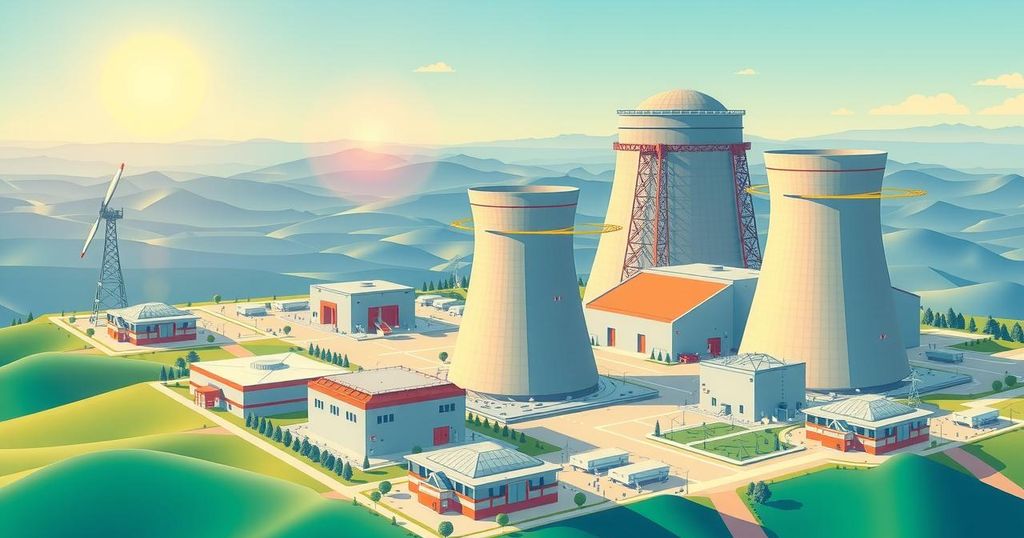Ghana Chooses US and China as Vendors for First Nuclear Power Plants
Ghana has selected the U.S. and China to develop its first nuclear power plants, with plans for both Small Modular Reactors and a Large Reactor. The initiative aims to enhance energy security and reduce reliance on fossil fuels while creating jobs and supporting industrial growth. Formal contracts are pending, and environmental assessments are being conducted to determine site locations.
Ghana has chosen the United States and China as vendors for its first nuclear power plants, although formal contracts have yet to be signed. The construction of Small Modular Reactors (SMRs) will be undertaken by U.S.-based NuScale Power and Regnum Technology Group, in collaboration with Japanese companies. Meanwhile, the China National Nuclear Corporation is designated to build a Large Reactor (LR).
Dr. Stephen Yamoah, Executive Director of Nuclear Power Ghana, disclosed these developments during a media engagement in Accra. The LR is projected to have a capacity of 1,200 megawatts, whereas the SMRs will consist of 12 modules with a combined generation capacity of 924 megawatts, each producing 77 megawatts.
According to Dr. Yamoah, the LR will be financed via a Build, Operate, and Transfer (BOT) model with local equity participation, while the SMRs will utilize Public-Private Partnerships (PPP) for funding. A framework agreement has been established with the vendors, and data collection for environmental and oceanic assessments is underway to select an appropriate site for the plant.
Mr. Archibold Buah-Kwofi, Acting Director of the Nuclear Power Institute, emphasized the necessity for stable and affordable electricity to facilitate national development. He pointed out the current heavy reliance on fossil fuels and hydro energy in Ghana’s energy mix, which is largely accompanied by a mere one percent contribution from renewable sources.
Buah-Kwofi articulated that the country must expedite the adoption of nuclear power to ensure a secure energy future, alongside relevant regulatory frameworks and a skilled workforce. The initiative aims to decrease dependency on fossil fuels, combat climate change, and bolster energy security.
The government’s vision includes integrating one gigawatt of nuclear energy into the national grid by 2034, which will also aid in industrialization, mitigate the effects of declining hydroelectric sources, reduce tariffs for industries, enable desalination processes, and generate employment opportunities. The selection of vendors followed a scrupulous process, beginning with 16 responses to a government call, which a technical team, under the Energy Ministry’s guidance, narrowed down to five candidates before concluding with the final two.
Ghana’s endeavor to harness nuclear power, which was hampered by a coup in the 1960s, saw a revival initiated in 2006 with support from the International Atomic Energy Agency (IAEA). The country joins several other African nations pursuing nuclear energy as a viable solution to power challenges and economic growth.
In summary, Ghana’s decision to select the United States and China as vendors for its inaugural nuclear power plants marks a significant step towards addressing the country’s energy challenges. The commitment to nuclear energy, underscored by a robust partnership and funding models, aims to enhance energy security and reduce reliance on traditional energy sources. The initiative is expected to bolster industrial growth and create job opportunities, paving the way for a sustainable energy future for Ghana.
Original Source: www.myjoyonline.com




Post Comment